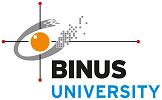Advancing Generational Potential: Skills and Partnerships in the Asia Pacific
Within universities is the opportunity to not only realise the potential of this generation of students, but the potential of establishing systems that set up future generations’ and institutions’ success. As institutions that can span centuries of existence, universities are some of the few organisations that can establish these systems, oversee them and adapt them. With the world of work and the future of skills, as well as global challenges, universities will also need to harness their reputation to boost collaboration and connection.
The 2025 QS Higher Ed Summit: Asia Pacific will explore how universities in the region can inspire success across generations both for themselves and their students and communities. The summit will feature forward-thinking conversations on the future of education, emphasizing the role of universities in fostering inclusive growth and excellence. Participants will engage in collaborative discussions and workshops aimed at setting new benchmarks for success. By focusing on the potential of both institutions and students, the summit seeks to inspire a new era of empowerment and achievement, paving the way for a future that realises the full promise of the Asia Pacific’s vibrant educational sector.



